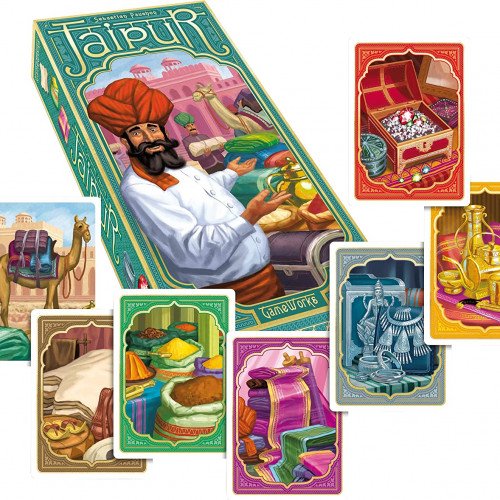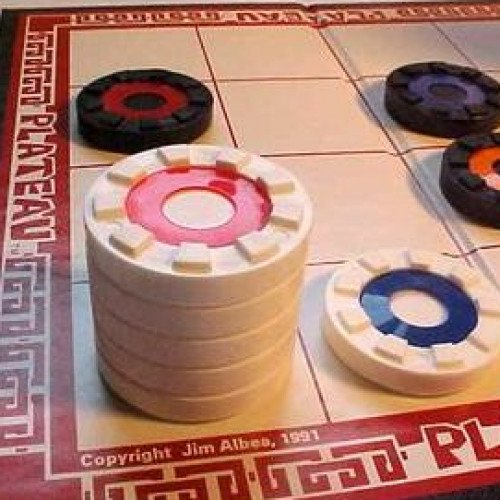JAIPUR VS PLATEAU

JAIPUR
Jaipur is a card game for two players. It was created by Sébastien Pauchon in 2009 and published by Asmodee. Players assume the roles of powerful merchants in Jaipur, the capital of Rajasthan. The aim is to receive two "seals of excellence" and be invited to the court of the Maharaja. The game focuses on buying, exchanging, and selling at better prices, all while keeping an eye on both your camel herds. Overall, the board game has received favorable reviews, many acknowledging its simplicity, yet sufficient depth. Shut Up & Sit Down have suggested that "great game for seasoned vets but also something you could easily introduce to people who don’t play a lot" whereas iSlayTheDragon said "Jaipur is a blast to play". Board Game Land has suggested that the game was "one of the top card games for couples". Jaipur has continued to be a popular game with recommendations into 2020 as well as being part of the Mind Sports Olympiad 2020 competition.
Statistics for this Xoptio

PLATEAU
Plateau is a two-player abstract strategy board game invented by Jim Albea. The game was developed over a two-year period culminating in its present form on May 12, 1986. The original name for the game was Pinnacle, but it was discovered that an older board/card game had that name, so around 1989 the name was changed to Plateau. From the 1980s through the 1990s Plateau was played at Science Fiction conventions mostly in the Southeastern United States. From the 1990s to the present, the game is played live at an online game site and via email. In 1997 a computer implementation of the game was created which facilitates email play and has a computer robot. Onboarding is adding one new piece to the play. This new piece can be placed anywhere that doesn't directly harm an opposing piece. For instance, you can onboard to any blank square or on top of any of your own pieces. The majority of Plateau moves are onboards. Instead of Onboarding or Moving, a player can choose to spend his turn exchanging prisoners. Prisoners are exchanged using the point values of the pieces. A simple value-for-value system is used. Since the pieces range in value from 1 point (for the mute) to 21 points (for the Ace) there are usually several combinations and options available for the players. The player initiating the exchange selects the pieces he wishes to exchange. These pieces will all add up to some point value. The responding player then has four options depending on the point values of the prisoners that he holds.